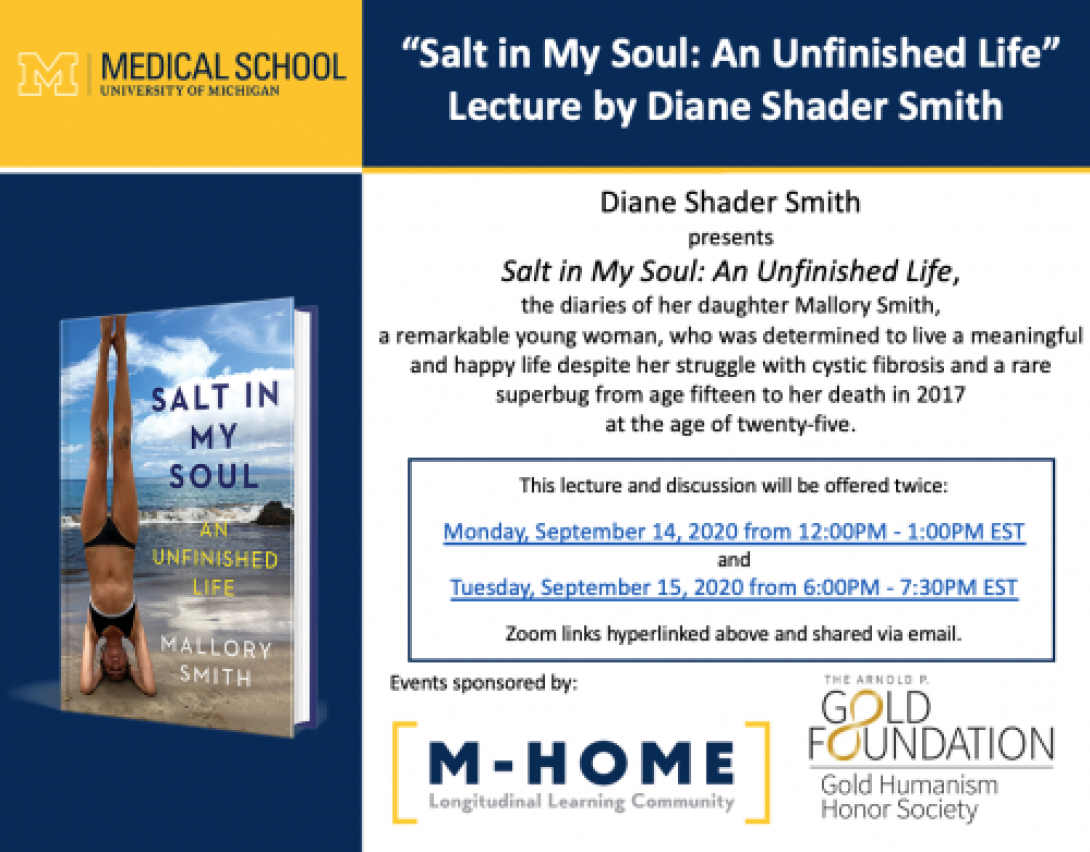Before even starting medical school, I worried about burn-out and that I would not live up to the type of physician I aspired to be. In an effort to preserve my compassion, I dove into narrative medicine. I carved out time to learn more than people's maladies by engaging with their stories. I created a list of twenty books to read in the year before I matriculated medical school. From The Empathy Exams to The Immortal Life of Henrietta Lacks, I read for at least an hour each day on my commute to work. During our core clerkships, when I had little time to dedicate to reading, I read patient blogs before going to bed. I followed two blogs in particular, one from Brooke Vittimberga and the other from Julie Yip-Williams. These stories helped me break out of the mindset of constant evaluation as a medical student and gave me perspective, enabling me to become an empathetic, caring human again. It felt (and still feels) urgent to connect to the humanism of medicine.
When it came time to choose a Capstone for Impact project, I knew I wanted to focus on the medical humanities, and I had a book in mind. Salt in My Soul: An Unfinished Life by Mallory Smith is a posthumously published memoir of Mallory's life battling cystic fibrosis. I was lucky enough to know Mallory during our years in college together. After reading her book, I grew to better understand the life of Mallory both as a friend and as a patient with a deep and intimate knowledge of the other side of medicine. Mallory writes about her brave battle with cystic fibrosis but refuses to be defined by the disease. Her prose gives a blueprint for building a fulfilling life while living with a chronic illness, addressing issues around disclosure of an often invisible illness, pain management in light of the opioid epidemic, the power of caregivers on her quality of life, insurance obstacles, mental health, body image, and end-of-life choices. I knew that Mallory's legacy was a significant contribution to the medical community and to the medical humanities, and I was eager to share her story with our community.
As I reflect on this event, the culmination of more than a year of planning, I'm reminded of how important it is to center the patient experience in our practice of medicine. Literature is one of my avenues for reconnecting to medical humanism. I am not alone in the venture. The most rewarding part of the Capstone for Impact project was witnessing how students who are about to enter the clinical environment sincerely engaged with the material. Narrative medicine is one way that patients like Mallory can make their impact on generations of medical practitioners. It is up to us to honor their legacy by reading their stories.
Now, as I prepare to start residency next year, I'm crafting a new list – taking any and all book recommendations!

University of Michigan Medical School
Want top health & research news weekly? Sign up for Health Lab’s newsletters today!





